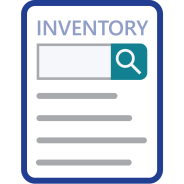
Choose from 5 options:
Australian importers and exporters of decabromodiphenyl ether (decaBDE), perfluorooctanoic acid (PFOA), its salts and PFOA-related compounds will soon need to comply with new rules following the inclusion of these hazardous chemicals in the Rotterdam Convention. Changes are likely to start in mid-2023.
Amendments to the Industrial Chemicals (General) Rules 2019 (General Rules) are coming that will affect the export or importation of decabromodiphenyl ether (decaBDE), perfluorooctanoic acid (PFOA), its salts and PFOA-related compounds. This move follows the addition of these chemicals in 2022 to Annex III of the Rotterdam Convention
The amendments will affect Division 1, Part 2 of Chapter 6 of the General Rules that deals with industrial chemicals that are subject to the Rotterdam Convention.
If you are currently importing or exporting any of these chemicals
You must cease any new import or export of these chemicals. You will need to apply to AICIS for import or export authorisation of PFOA, its salts and PFOA-related compounds or decaBDE (application fee will apply).
You will only be able to resume importing or exporting these chemicals if you receive authorisation from AICIS. It will be an offence to import or export these chemicals without authorisation and penalties apply.
If you are planning to introduce any of these chemicals
- Apply to AICIS for import or export authorisation of PFOA, its salts and PFOA-related compounds or decaBDE (application fee will apply)
- Receive authorisation from AICIS before you can import or export these chemicals - it will be an offence to import or export these chemicals without authorisation and penalties apply.
Call for information: current and previous importers and exporters
We need to collect information from current and previous importers and exporters of decaBDE or PFOA, its salts or PFOA-related compounds who introduced at any time after 30 June 2022. Your information will not be disclosed outside of AICIS. This information request is made under Part 9 of the Industrial Chemicals Act 2019.
Tell us about your import or export by 15 September 2023
| Common name | decaBDE |
|---|---|
| CAS number | 1163-19-5 |
| CAS name | Benzene, 1,1'-oxybis[2,3,4,5,6-pentabromo-] |
| IUPAC name | 2,3,4,5,6-Pentabromo-1-(2,3,4,5,6-pentabromophenoxy)benzene |
| EC number | 214-604-9; EC name: Bis(pentabromophenyl) ether |
| Molecular formula | C12Br10O |
| Synonyms |
|
You should also check the Rotterdam Convention website, which periodically updates their list of Annex III PFOA, its salts and PFOA-related compounds.
About the Rotterdam Convention
The Rotterdam Convention is an international treaty that aims to protect human health and the environment in relation to international trade of hazardous chemicals. Australia is a party to this Convention. Annex III is a list of pesticides and industrial chemicals that have been banned or severely restricted for health or environmental reasons. Most Annex III-listed industrial chemicals cannot be imported or exported without prior AICIS authorisation. These chemicals were added to Annex III of the Rotterdam Convention in late 2022:
- Perfluorooctanoic acid (PFOA), its salts and PFOA-related compounds
- Decabromodiphenyl ether (decaBDE).